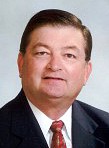
Alex Mills
By Alex Mills
The global warming debate got even hotter last week when Dr. John Bates, an award-winning retired National Oceanic and Atmospheric Administration (NOAA) scientist questioned the validity and preservation of data collected by the NOAA, causing Congressman Lamar Smith (R-Tx.), Chairman of the U.S. House Science, Space, and Technology Committee to remark during a Feb. 6 hearing that “EPA has pursued a political agenda—not a scientific one.”
Chairman Smith added that EPA had “relied on questionable science,” leading to “expensive and ineffective regulations.”
A few days before the Congressional hearing, Dr. Bates wrote a paper criticizing both the procedures used during an NOAA temperature study and one of the people who conducted that study.
The study, conducted by Tom Karl et al. in 2015 (K15), attempted to disprove the results of previous studies conducted by United Nations (UN) scientists. The UN studies showed an unexplained “hiatus” in global warming from 1998-2013; K15 attempted to counter those studies and prove there never was any “pause” in global warming. Consequently, the K15 study earned the moniker, “Pausebuster Paper”.
The “pause” UN scientists observed in global warming had puzzled climate scientists for years because as temperatures remained steady, emissions continued to rise, leading some to question exactly how much influence manmade emissions have on Earth’s climate.
Bates said Karl “failed to disclose critical information” to NOAA, and that “The land temperature dataset used in the K15 study had never been processed through the station adjustment software before, which led me to believe something was amiss.”
Bates, whose “visionary work in the acquisition, production, and preservation of climate data records” earned him a U.S. Department of Commerce Gold Medal, was “dumbstruck that Tom Karl, the NCEI Director in charge of NOAA’s climate data archive, would not follow the policy of his own agency, nor the guidelines in Science magazine for dataset archival and documentation.”
Bates also revealed that Karl “worked the co-authors, most subtly but sometimes not, pushing choices to emphasize warming,” and that “Gradually, in the months after K15 came out, the evidence kept mounting that Tom Karl constantly had his ‘thumb on the scale’ […] in an effort to discredit the notion of the global warming hiatus, and rushed to time the publication of the paper to influence […] deliberations on climate policy.”
K15 was published just before the release of EPA’s Clean Power Plan, and before the adoption of the Paris climate agreement.
As questions about the data’s validity arose, computer “software problems” began: “All software has errors, and it is not surprising there were some, but the magnitude of the problem was significant and a rigorous process of software improvement like the one proposed was needed,” Bates wrote. “However, this effort was just beginning when the K15 paper was submitted, and so K15 must have used data with some experimental processing [that had] known flaws.”
“I later learned that the computer used to process the software had suffered a complete failure, leading to a tongue-in-cheek joke by some who had worked on it that the failure was deliberate to ensure the result could never be replicated,” Bates wrote.
Bates’s disclosures give yet another example of questionable actions by people at the center of the global warming debate. In 2009, thousands of leaked emails were released that indicated scientists were manipulating data to conceal inaccuracies in an effort to support their global warming theory, a scandal that later became known as “Climategate.”
Chairman Smith issued subpoenas demanding data relevant to the “Pausebuster Paper”, including internal emails, but NOAA refused to comply.
Dr. Bates said he decided to speak out after reading comments from scientists who said they feared the Trump administration would fail to maintain and preserve NOAA’s climate records.
“I read with great irony recently that scientists are ‘frantically copying U.S. climate data’, fearing it might vanish under Trump,” Bates wrote, stating, “The most serious example of a climate scientist not archiving or documenting a critical climate dataset was the K15 study.”
Alex Mills is President of the Texas Alliance of Energy Producers. The opinions expressed are solely of the author.





















Speak Your Mind